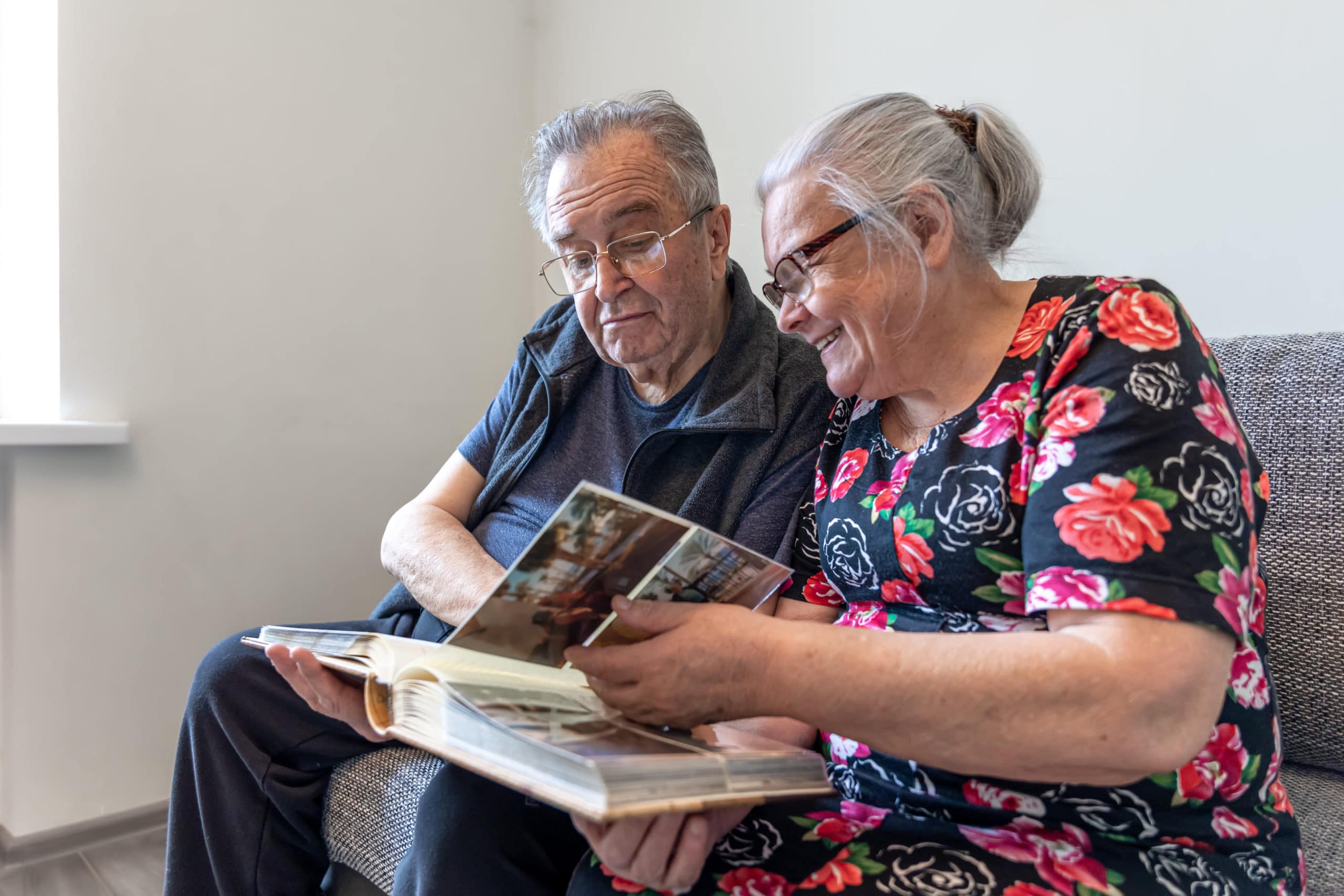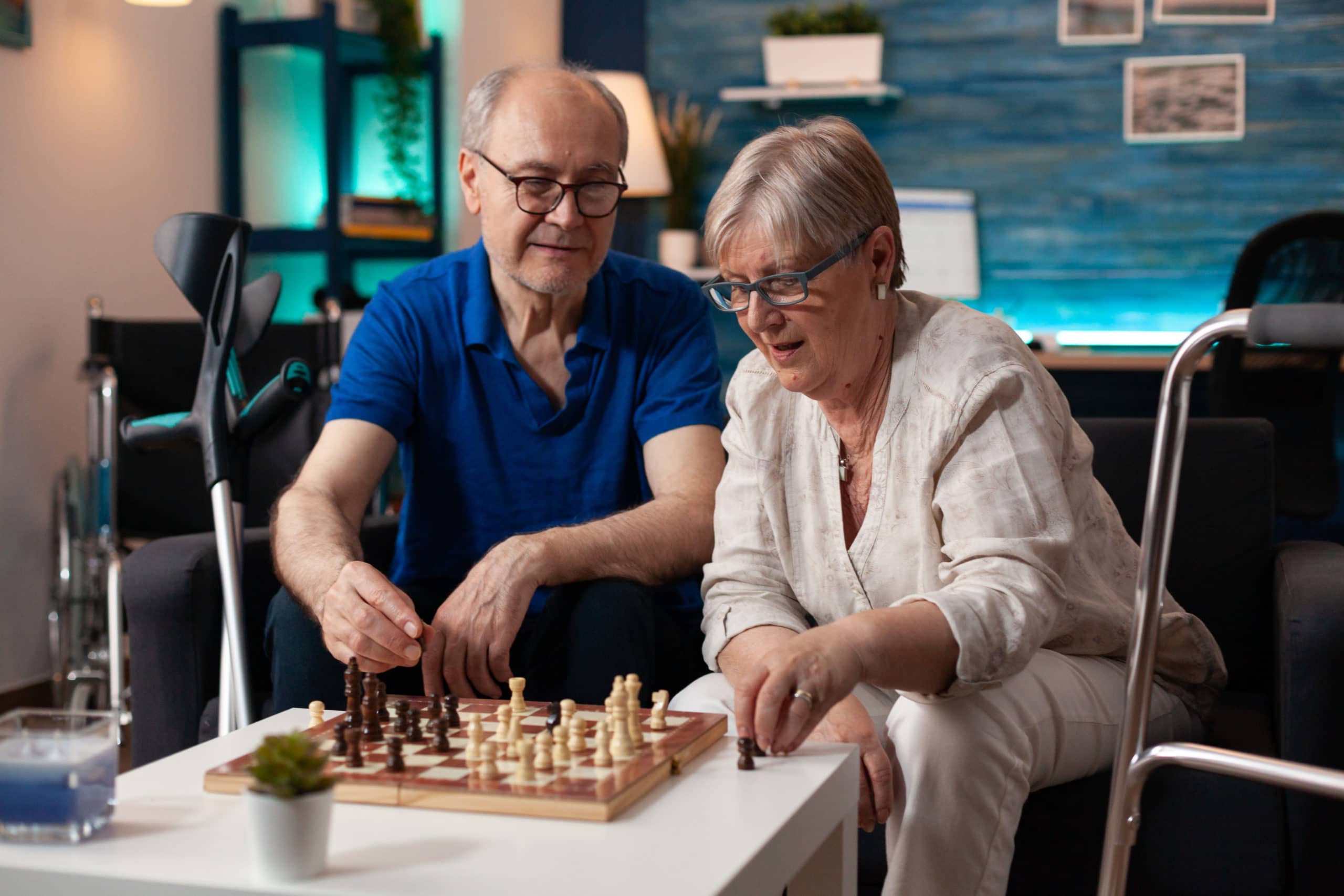If you’ve noticed your grandparent isn’t as confident as they used to be, or perhaps a loved one is more reluctant to get out about, it is likely that what you are recognising is a lack of self-esteem. We believe that everyone should live full and happy lives, no matter their age, which is why it is key to look out for signs of low self-esteem in the elderly.

The Link Between Self-Esteem & Elderly Health
There is a strong link between elderly health and self-esteem, which means that if your loved one has a long-term health condition or has recently had a fall, this will have a direct impact on their self-esteem.
As people get older, it is not uncommon for someone to need more time to recover and recuperate following illness, and within this time people often fall out of their usual routines and may have to rely on others more. Factors such as difficulty with mobility and balance, and feeling too unwell to do usual hobbies can all contribute to a loss in overall confidence. If an elderly person has had to adjust to a new routine or adapt with a progressing condition, they can often feel intimidated by everyday tasks they used to do independently and leaving the house for events or appointments.
How Growing Old Affects Self-Esteem
There are many factors that can affect a person’s self-esteem, from mental and physical health to a change in circumstances, such as moving to a new house or living alone for the first time. Whether they are lifestyle factors, or the physical changes that happen as you grow older, we understand that you may not feel as confident as you used to – or perhaps, you’ve noticed your loved one is more reluctant to fulfil hobbies or try something new.
The following factors can affect your self-esteem as you grow older:
Loneliness and isolation
Loneliness and isolation can have a significant impact on your life, including your confidence and self-esteem. According to Age UK, 225,000 older people often go a week without speaking to anyone, and over half a million of those who have been lonely say it stops them going out and about. If there are noticeable changes to your loved one’s confidence, it could be caused by isolation from living alone, or perhaps, seeing friends less regularly than before.
Physical health and mobility
Whether or not an elderly person has a long-term condition or experiences difficulty with their mobility, it is common to experience a loss of self-esteem as we grow older. With age, we naturally slow down and lose strength, and more often than not, this changes how we approach tasks. For example, an elderly person may be less inclined to try a new hobby than a young adult because they have concerns about how well they would perform a task, or perhaps even their safety.
A change in circumstances
From the loss of a loved one to a significant change to your health, a change in circumstances can have a huge impact on your self-esteem. In times of change, we are more likely to seek comfort in places that we feel safe, such as our homes. If the change in circumstances has a long-term effect on your confidence, you may experience reduced self-esteem and avoid doing your usual activities in order to feel safe and secure at home.
5 Ways to Boost Self-Confidence In the Elderly
- Plan fun days out that spark an interest – start with something small like visiting the local garden centre and then build up towards a trip to the beach or to a beautiful stately home.
- Find local groups in the community to help your loved one socialise and build new friendships. Organisations such as Age UK provide a safe and positive space to meet new people.
- Help them pick up a neglected hobby that they used to love. It could be that they used to be an avid gardener, or perhaps they’d enjoy doing some arts and crafts, chat with them about things they used to enjoy and help them build up their confidence again.
- Be patient with them and work at their pace, they will feel more confident knowing that you are there to reassure them and help them reach milestones together.
- Setting goals is a fantastic way to break down big milestones and recognise the little wins that you are achieving every day. It can be easy to focus on the long-term goals when you are working with your loved one to build self-confidence, but by setting small, achievable goals they will experience a boost to their self-esteem and feel more motivated to carry on.

A helping hand
We believe that everyone deserves to feel confident and secure in their day-to-day life, regardless of age, which is why our care is focused on helping you achieve just that. We recognise that your autonomy and independence have a significant impact upon your self-esteem, so we’ll work around you and your routines to support you in the best way for your needs. From support with housework to picking up an old hobby and getting out and about again, whatever your goals, we can help you achieve them and inject more confidence into your independent living.
For more information, please call 0330 029 8699 or request a callback and we will call you.